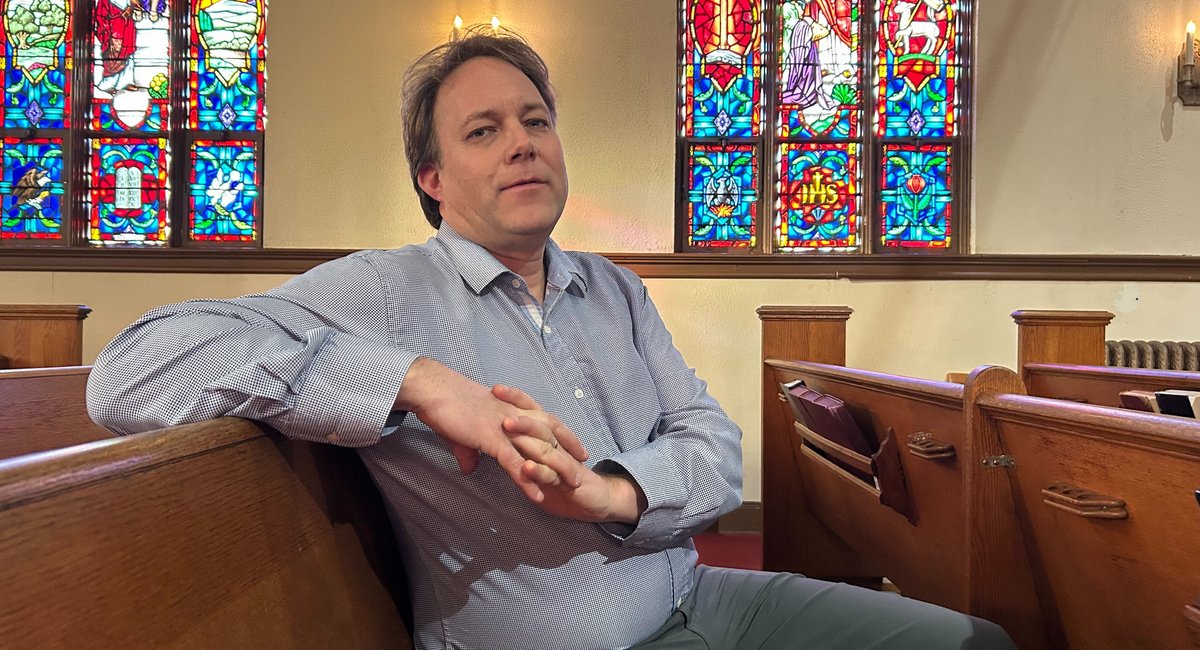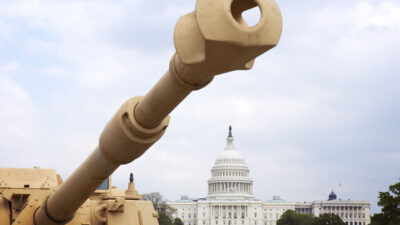A New Jersey-based agency that has helped resettle thousands of refugees fleeing harsh conditions and violence around the globe announced it won’t help resettle white South Africans in the United States, citing “xenophobia and racism” by the Trump administration.
Seth Kaper-Dale, co-pastor at the Reformed Church of Highland Park who oversees Interfaith RISE, an official resettlement agency, said Thursday there was “no way” the organization would help the administration resettle the white South Africans — while the White House has ceased taking in refugees from Black African and other nations.
“It’s just to participate in straight-up xenophobia and racism and it feels so dirty to continue in a partnership with a government that behaves like this,” Kaper-Dale said. “So we’re not doing it.”
White House spokesperson Anna Kelly defended its decision to admit the South Africans as refugees. “Afrikaners have faced unspeakable horrors and are no less deserving of refugee resettlement than the hundreds of thousands of others who were allowed into the United States during the past Administration,” she said in a statement.
The Trump administration this week welcomed 59 white South Africans as refugees. In recent months, it has swiftly revoked immigration authorizations for hundreds of thousands of nationals from Haiti, Venezuela and other predominantly Black and brown nations. Human rights advocates say the revocations in some cases will mean sending those immigrants back to home countries rocked by violence and harsh conditions.
The New Jersey group’s announcement follows a similar declaration from the Episcopal Church, which said this week it would end its robust refugee resettlement program after 40 years of collaboration with the federal government, citing concerns about Trump administration policy.
“In light of our church’s steadfast commitment to racial justice and reconciliation and our historic ties with the Anglican Church of Southern Africa, we are not able to take this step,” presiding Bishop Sean Rowe wrote in a letter published Monday.
And in early April, prior to the arrival of South African refugees, the U.S. Conference of Catholic Bishops said it would cease its nearly half-century-old resettlement partnership with the federal government.
The federal Office of Refugee Resettlement said in a statement that “additional arrivals” from South Africa are expected in the coming months, and that the agency is closely coordinating with federal, state and local partners “to safely and successfully integrate within our country.”
The issue has drawn condemnation from human rights activists who said the president is misrepresenting race relations in South Africa in order to advance a political cause.
Trump alleged on Monday, without any evidence, “It’s a genocide that’s taking place … white farmers are being brutally killed, and their land is being confiscated in South Africa.”
In an executive order issued Feb. 7 that officially established the resettlement of white South Africans in the U.S., Trump cited “Afrikaner refugees escaping government-sponsored race-based discrimination, including racially discriminatory property confiscation.” He also said the South African government had taken “aggressive positions” toward the U.S. and Israel by accusing the latter of genocide in the International Court of Justice.
Michelle Fine, a professor of psychology and urban education at the CUNY Graduate Center and a visiting professor at the University of South Africa who studies structural racism, said the executive order was misleading and distorted the reality of post-apartheid South Africa.
“ In South Africa, 90% of South Africans are Black. They own 4% of the land,” Fine said. She added that while 60% of Black South Africans live below the poverty line, only 1% of white South Africans do.
“There is no evidence that this population should be elevated to the status of refugee,” she said.
A white minority ruled South Africa from 1948 to 1994, under a period of apartheid during which a strict system of racial segregation and anti-Black discrimination was official government policy.
Kaper-Dale of the Reformed Church of Highland Park said he notified the U.S. Committee for Refugees and Immigrants, a nonprofit group his organization works with, about his decision in a letter this week.
He said his organization had resettled an average of 2,500 Haitian refugees in New Jersey in each of the last three years. The Trump administration’s decision to stop supporting refugee resettlement from other countries, in addition to drastic federal cuts, has decimated his organization, reducing the workforce from 215 to 110, according to Kaper-Dale.
The group’s decision not to assist with the resettlement of South Africans, he said, would likely have an additional impact.
“This will be saying goodbye to hundreds of thousands of dollars and maybe more,” he said. “To be honest, we don’t know the full ramifications of our decision.”
Some other local organizations said they would cooperate with the administration on the resettlement of South Africans, including the New York-based International Rescue Committee.
“In the midst of a complete suspension of the U.S. Refugee Admissions Program, the arrival of these families shows the U.S. has the capacity to remain a welcoming nation that provides a lifeline for people seeking safety from violence and persecution,” committee spokesperson Cinthya Hagemeier told the New York Times.
Zachariah Mampilly, cofounder of the New York-based Program on African Social Research and a chair of international affairs at Baruch College, said the administration’s move, coupled with its ongoing rhetoric painting immigrants as dangerous, represented the return of “an openly racial angle to U.S. foreign policy.”
“Alongside stoking fear of Black and brown migrants, fretting the demographic decline of white people and now welcoming explicitly white refugees, we see the convergence of white nationalism at home with white supremacist foreign policy abroad,” Mampilly said.



